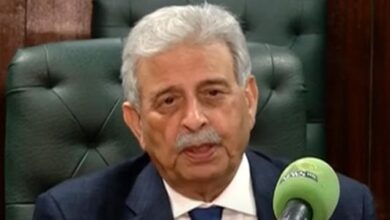ISLAMABAD: Federal Minister for Law, Azam Nazir Tarar, has outlined significant proposed changes in the 27th constitutional amendment, highlighting key reforms aimed at reducing executive powers in judicial transfers and the lifetime title of Field Marshal.
Addressing the media after a Cabinet meeting, Tarar explained that Prime Minister Shehbaz Sharif had chaired the meeting via video link from Baku, where discussions focused on the amendments to be presented in the upcoming Senate session.
Tarar stated the government has already completed consultations with coalition partners, including the Pakistan Peoples Party (PPP) and Muttahida Qaumi Movement (MQM). The minister emphasized that the amendments align with commitments made in the Charter of Democracy, particularly regarding the establishment of a constitutional court.
A key element of the proposed changes includes a reduction in the executive’s authority over judicial transfers. The new amendment suggests transferring this power to the Judicial Commission, which would limit the role of the executive in the appointment and transfer of judges.
Additionally, Tarar revealed that the amendment would address delayed Senate elections in Khyber Pakhtunkhwa (KP), ensuring that elections are conducted simultaneously across the country. There is also a proposal to increase the number of constituencies in the Balochistan Assembly.
The proposed amendment also touches upon Article 243, which deals with the appointment of top military officials. A change in the appointment process is included, and the title of Field Marshal will be retained as a lifetime honor, echoing a position that existed prior to the 1973 constitution, before being abolished.
Furthermore, Tarar mentioned that there would be a revision to Article 140-A, and a bill related to this article, proposed by the MQM, will be brought before the committee. The government is urging coalition partners to support the passage of this amendment.
Other proposed changes include increasing the number of advisors from five to seven, with the aim of streamlining decision-making processes. The proposed amendments are expected to create clarity in both judicial and military procedures, as well as address electoral and administrative issues.







